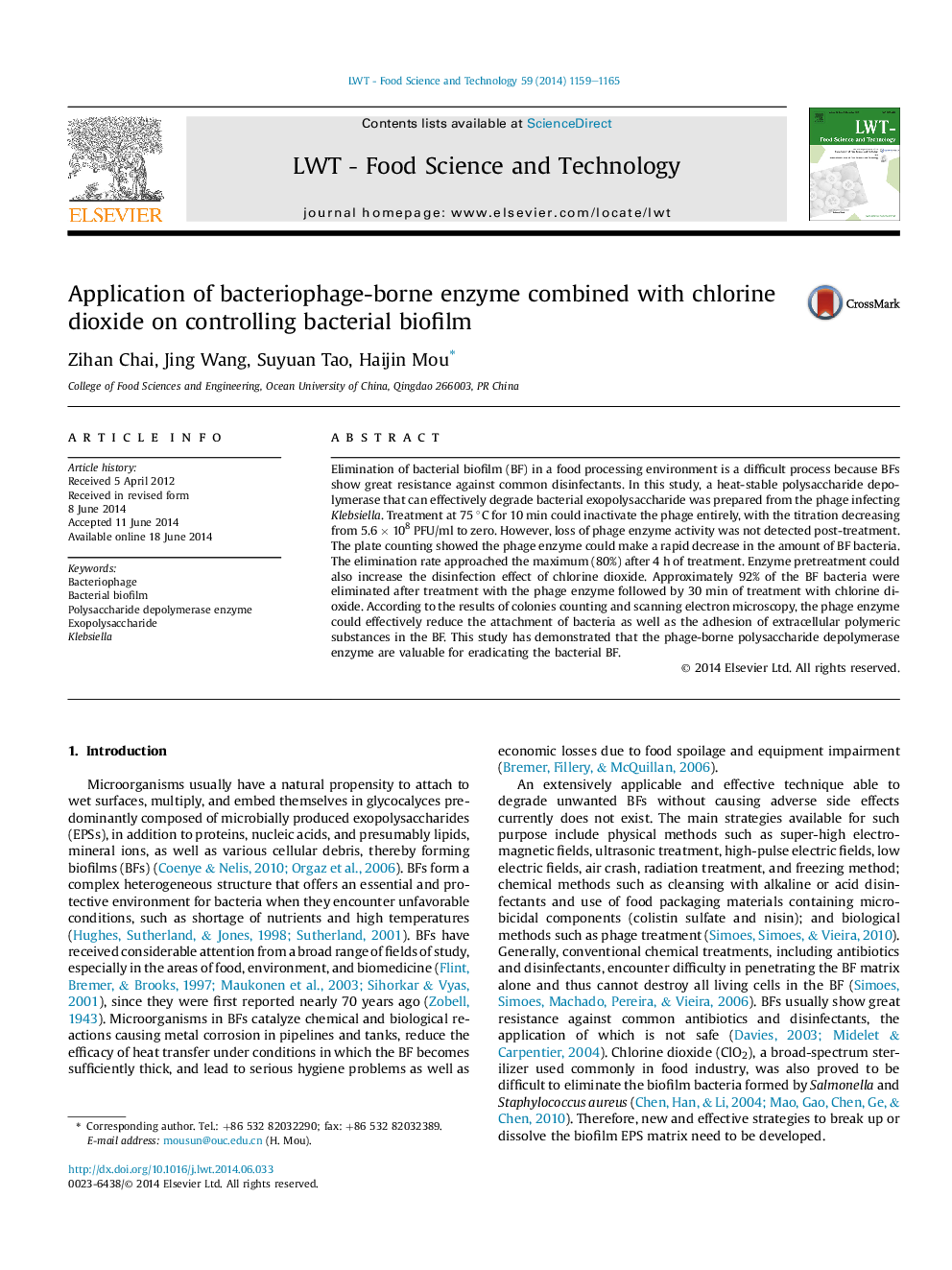| Article ID | Journal | Published Year | Pages | File Type |
|---|---|---|---|---|
| 6402721 | LWT - Food Science and Technology | 2014 | 7 Pages |
Abstract
Elimination of bacterial biofilm (BF) in a food processing environment is a difficult process because BFs show great resistance against common disinfectants. In this study, a heat-stable polysaccharide depolymerase that can effectively degrade bacterial exopolysaccharide was prepared from the phage infecting Klebsiella. Treatment at 75 °C for 10 min could inactivate the phage entirely, with the titration decreasing from 5.6 Ã 108 PFU/ml to zero. However, loss of phage enzyme activity was not detected post-treatment. The plate counting showed the phage enzyme could make a rapid decrease in the amount of BF bacteria. The elimination rate approached the maximum (80%) after 4 h of treatment. Enzyme pretreatment could also increase the disinfection effect of chlorine dioxide. Approximately 92% of the BF bacteria were eliminated after treatment with the phage enzyme followed by 30 min of treatment with chlorine dioxide. According to the results of colonies counting and scanning electron microscopy, the phage enzyme could effectively reduce the attachment of bacteria as well as the adhesion of extracellular polymeric substances in the BF. This study has demonstrated that the phage-borne polysaccharide depolymerase enzyme are valuable for eradicating the bacterial BF.
Related Topics
Life Sciences
Agricultural and Biological Sciences
Food Science
Authors
Zihan Chai, Jing Wang, Suyuan Tao, Haijin Mou,
